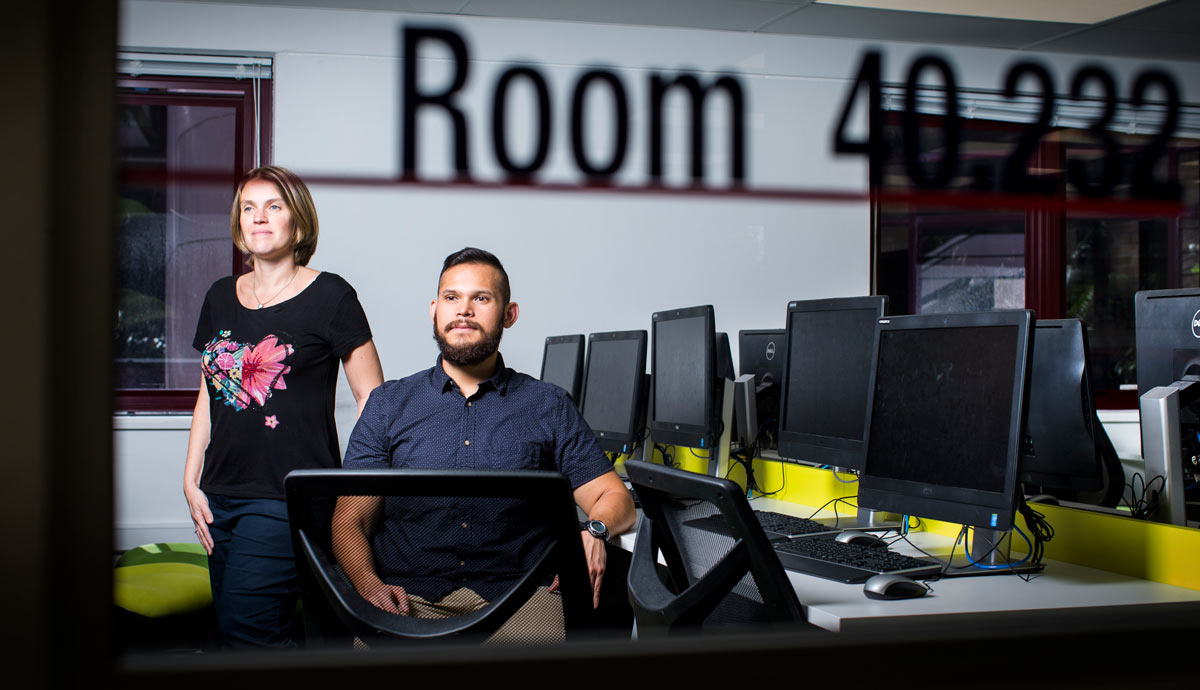April 12, 2018
Schooling for success might depend on the company you keep
Study investigates whether having smart classmates makes students smarter.
Putting underperforming students in the same class could further damage their academic progress, a study has found, raising questions about the impact of grouping children by ability.
University of Wollongong (UOW) economists Dr Silvia Mendolia and Dr Alfredo Paloyo, in partnership with Professor Ian Walker from Lancaster University in the UK, set out to study how the performance of classmates affected two key outcomes for students: their test score performances at the end of high school and whether they went on to higher education.
The influence of classmates, known as peer effects, interests researchers because it holds out the prospect of achieving better outcomes by paying attention to the classroom composition, a relatively simple and cost-effective method when compared with employing better teachers or investing in new teaching technologies.
The researchers used English data from the Longitudinal Study of Young People in England (LSYPE) to gain insights into the student’s background including their family circumstances, where they went to school, their peers, their test scores in high-stakes exams at ages 16 and 18, and whether they attended university.
The study showed that peer quality has a small effect on an individual’s test scores at age 18, but a large proportion of low-ability students has a detrimental impact on the performance of average children, particularly if they were already performing poorly.
“If we use grades as a measure of ability — and we would be the first to admit that it is a crude measure of ability — we find that students who have lower grades are most affected by their peers,” Dr Paloyo said.
“In other words, putting a weak student together with other weaker students would be detrimental for all of them. This is extremely relevant in contexts where students are grouped by ability.”
Surprisingly, the researchers found the peer effect wasn’t as pronounced among higher-achieving students, who seemed to be insulated from peer influence.
“This is interesting given the strong emphasis — mostly from the educational research literature — on grouping children by ability,” Dr Paloyo said.
Dr Mendolia said the study wasn't as simple as comparing grades among students, given that educational achievements are determined by a variety of factors, such as parental socio-economic background, educational stimulation at home, individual ability, non-cognitive skills such as perseverance, empathy and teamwork, as well as the influence of their peers.
That students can choose who they’ll associate with, for better or for worse, implies that other factors such as innate ability and motivation may also drive how peers influence academic outcomes.
And while one classmate is influenced by others, they themselves are influencing those around them, an effect known as the ‘reflection problem’, and researchers had to rely on a complex strategy to reduce its influence on their estimate of the peer effect and get a more credible estimate of the impact of peer quality on student outcomes.
This was done by isolating changes in peer performance that aren’t the result of the student’s choice of peers or the reflection problem.
Given the richness of the LSYPE data, the researchers were also able to account for a wide variety of factors that influence performance in school, including those that are common among students in the same school.
The results point to the need for schools to provide a variety of opportunities for students to interact with classmates of different abilities.
“This is unlikely to penalise the very smart ones and is likely to bring substantial benefits for those who find school work more challenging. It would be a mistake to say that grouping smart kids together is a bad thing. However, low achievers would especially suffer if ability grouping is too rigid,” Dr Mendolia said.
Dr Paloyo added: “It is important to carefully select an appropriate student mix, especially to support students who struggle. But such an adjustment is not likely to compensate for deficiencies in other areas, such as early-childhood investments at home and teacher quality at school.”
The study was published recently in the journal Oxford Economic Papers.
